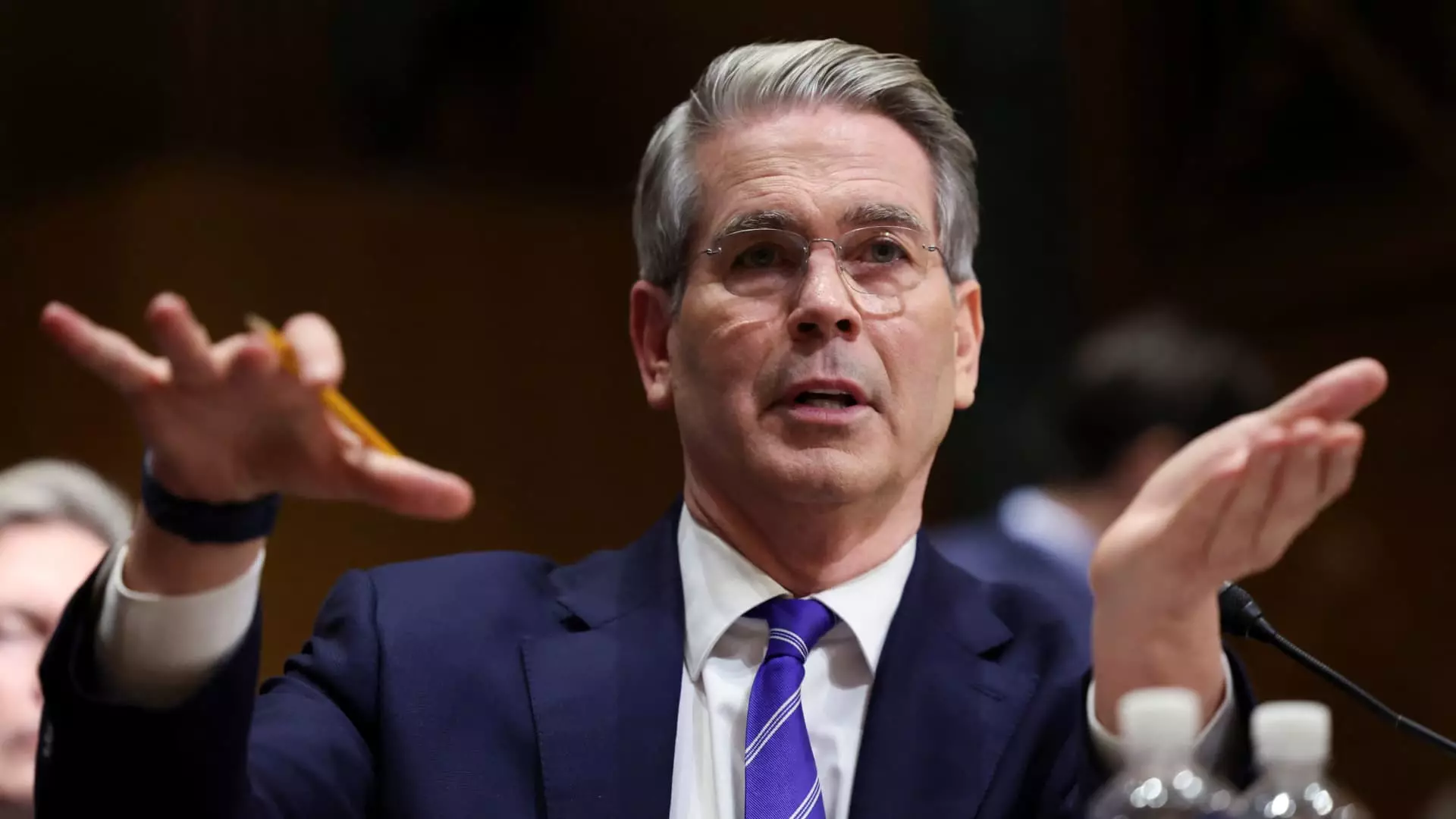The recent statements made by Treasury Secretary Scott Bessent are telling of the ongoing trade tensions between the United States and China. Bessent, with a confident but competitive tone, argued that China’s escalation of tariffs constitutes a strategic blunder on their part. His assertion that China is “playing with a pair of twos” starkly delineates the U.S. position as strong while framing China as naive. However, this bravado neglects the complexities of global economics and the potential ramifications of such protectionist strategies.
By claiming that the U.S. exports only one-fifth of what China exports to the U.S., Bessent paints a precarious picture where American leverage appears unquestioned. This rhetoric could bolster a sense of nationalistic pride and economic superiority but overlooks vital concerns. Tariffs disrupt markets, undermine global supply chains, and impose hidden taxes on American consumers. By emphasizing a simplistic narrative of winners and losers, the administration risks alienating allies and igniting retaliatory measures that could backfire.
The Myth of Job Creation
Bessent’s hopes for tariff policies to generate jobs and revive American manufacturing reflect an appealing dream for many workers dislocated by globalization. Yet, the reality is far less optimistic. The promise that putting up a “tariff wall” would bring jobs back to the U.S. stands on shaky ground. Historical evidence suggests that while some sectors may benefit, a significant number of jobs lost in other industries often outweighs the gains.
The intricate tapestry of modern economies means that many American jobs are intertwined with global supply chains. Tariffs may protect certain industries in the short term, yet they can lead to increased costs for American companies that rely on foreign imports, ultimately resulting in higher prices for consumers. Americans may find solace in the administration’s promises, but the detrimental ripple effects could compromise the economic security of the very workers they aim to support.
Misjudging the Opposition
This approach seems to dismiss China’s long-term strategic capabilities in the game of international trade. Despite the triumphalist tone, the threat posed by China is nuanced; they are not merely sitting idly while the U.S. levies tariffs. Their decision to impose a staggering 34% tariff on U.S. products exhibits a willingness to “fight to the end.” Such tenacious responses undermine the simplistic narrative that the trade war is one that can be easily won through intimidation and bravado. The failure to account for this complexity fosters a dangerous overconfidence, risking escalation into a protracted and damaging conflict.
Additionally, the aspiration for broader negotiations, as posited by Bessent, may not materialize as effortlessly as he suggests. While countries like Japan may be willing to engage, others with trade deficits could be hesitant to enter talks without mutual consideration. The penchant for unilateralism in the current administration further complicates these negotiations, as potential partners might view U.S. policy as overly aggressive or erratic.
Challenges Beyond Tariffs
Moreover, the administration’s focus on nontariff barriers—while valid—frames a hyper-complex issue in overly simplistic terms. Currency manipulation, Europe’s value-added taxes, and other forms of trade distortion indeed need scrutiny, but targeting these issues cannot come at the cost of fostering alliances. An approach centered on isolationist tactics entails risk, particularly when such measures deter collaborative efforts with key trading partners who might share an interest in addressing these impediments.
A holistic strategy should focus on addressing structural economic challenges, rather than grossly simplistic solutions that only aggravate international relationships. By understanding and valuing cooperative engagement rather than aggressive tactics, the U.S. could potentially enhance not only its economic standing but also its global leadership.
Much like in a game of poker, where reading opponents and gauging their reactions can sometimes be more important than the cards themselves, the U.S. must tread carefully. A boisterous assertion of strength can become a hubristic downfall. The path forward ought to involve recalibrating our approach to trade, crafting mutually beneficial agreements that prioritize long-term stability over short-lived victories. The stakes are high, and the future of the global economy hangs in the balance.

